Because of COVID-19 restrictions, this Aussie family meets across a ditch on the US-Canadian border
By Georgina Smyth
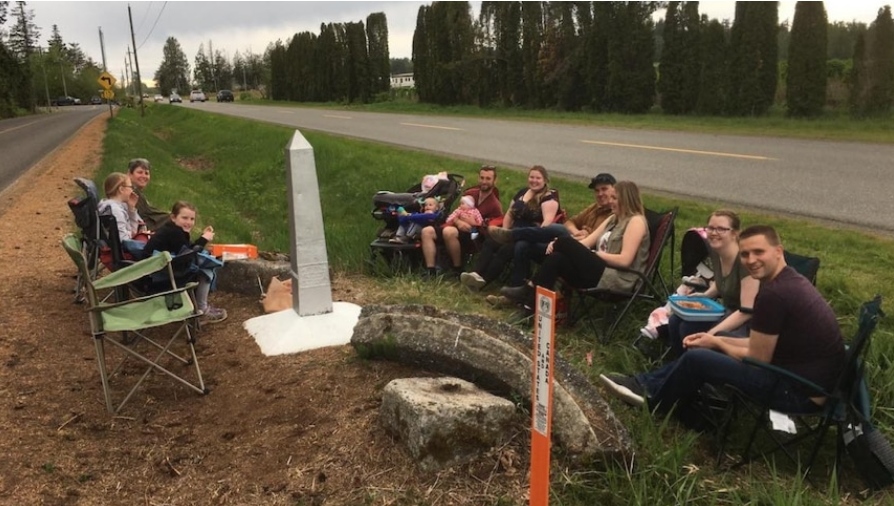
The Houwelings, who live just a five-minute drive from the US-Canadian border, try to meet there every few weeks.
A drainage ditch on the side of a road is the only place where Fiona Houweling can see her three adult children in person.
The ditch straddles the US-Canada border and has become a meeting place for the Australian family of 13, who have been separated by ongoing COVID-19 travel restrictions.
It’s been 16 months since the US and Canada decided to close their shared land border and the Houwelings say they don’t know when they’ll be together again.
“There’s no plan and I think that frustrates a lot of people,” Houweling said.
Rising vaccination rates in the United States and Canada earlier this year spread optimism of a return to relaxed travel between the two neighbours. But the Canadian government has since delayed the entry of foreigners until at least July 21.
Meanwhile, the politics of reopening North America’s borders to visitors is being closely watched by the Australian government. Much like the Canadian government, Australia’s Department of Health says decisions on opening to international travel will be driven by medical advice.
“Australia is aware of decisions being made by other governments, and is considering the experiences of others,” a health department spokesperson said.
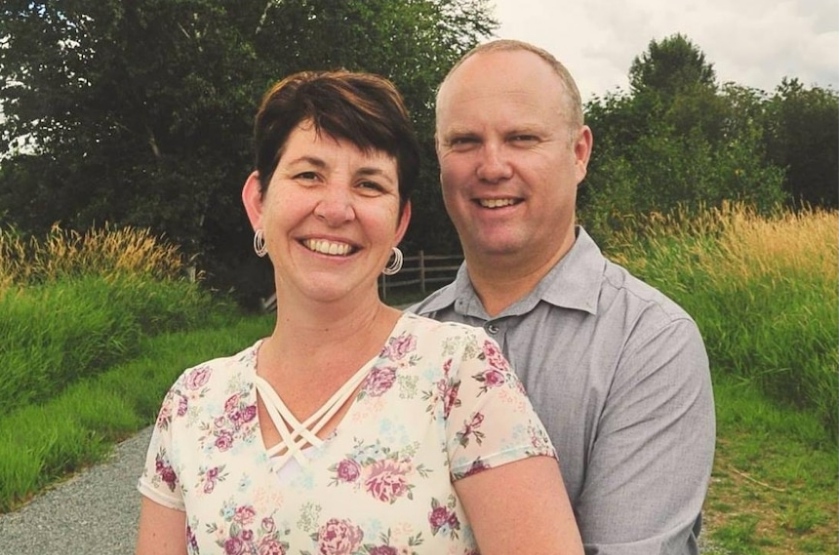
Fiona Houweling and her husband Stephen live in Sumas, Washington.
The trench between British Columbia in Canada and Washington state in the US is the world’s longest undefended international land border. It has minimal infrastructure and patrols, which makes it the ideal place for separated families, couples and friends to meet.
The Houwelings, who live just a five-minute drive from the border, try to meet there every few weeks.
On the US side is Fiona, her husband Stephen and two young children Shantel and Taleesha. On the Canadian side are her three older children, Anthea, Jaclyn, Stefan and their families.
Originally from Perth, the family moved to the city of Sumas in Washington eight years ago, when Stephen took up a teaching job at a Christian school.
A few years ago, Anthea, Jaclyn and Stefan all met and married Canadians. The children decided to live in the Canadian city of Abbotsford, which is just a 20-minute drive from their parents’ house, despite being in a different country.
“At that time, it was just a border, it was no big deal,” Fiona said.
That was pre-COVID.
On March 21 last year the US and Canada took the unprecedented step of closing the land border and imposing restrictions on people flying into Canada. The closure, Fiona says, has torn her family apart.
Last September, Fiona made a desperate and impulsive trip to the border, where she tried to cross into Canada to see her children. “I told no one, I just thought I’d give it a try,” she said.
But her trip was deemed “unessential” by the Canadian Border Services Agency.
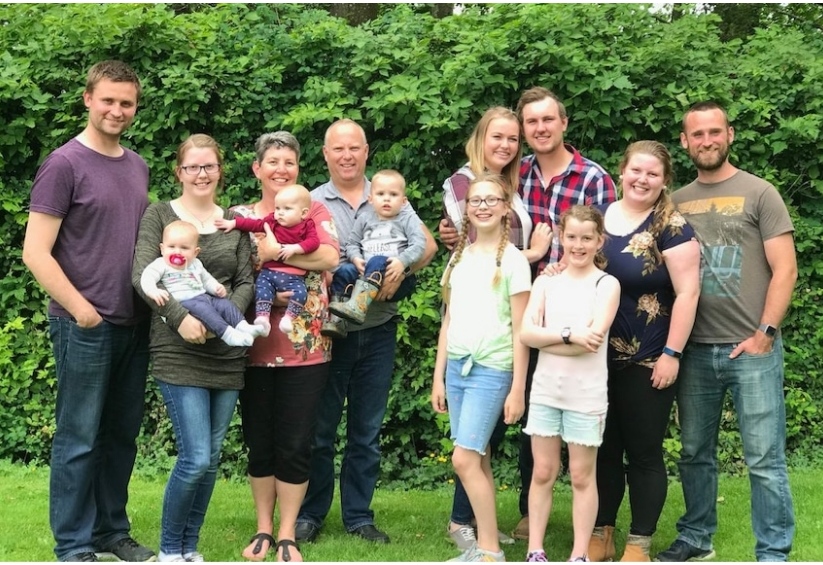
With two more grandchildren on the way, Fiona Houweling is desperate to reunite her family this summer.
Despite the trying circumstances, the family has managed to meet up properly twice since the pandemic began.
Once was for their grandson’s birthday last summer, when the Houwelings and their Canadian in-laws met for a picnic in a “no man’s land” space between the US and Canada, called Peace Arch Park. Thanks to a long-standing agreement between the two countries, people like the Houwelings were able to meet with each other without crossing a border, so long as they stayed within the park.
There’s no border checkpoint and when Canadians return they don’t have to follow the country’s two-week quarantine rule. There are no travel restrictions or quarantine requirements on the US side.
“It was amazing,” Fiona said of the reunion. “We hugged just like normal.”
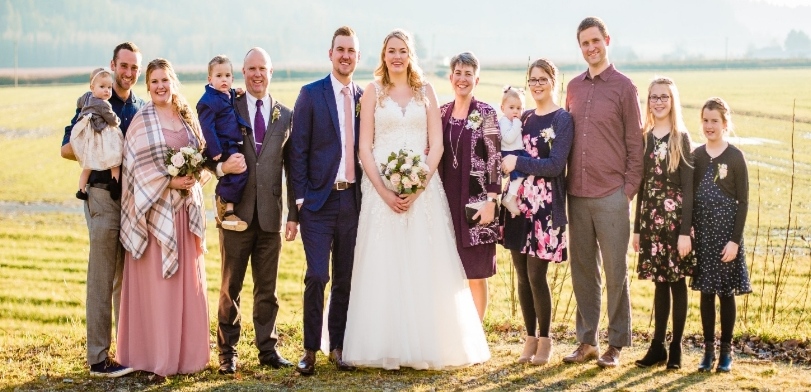
A few years ago, Anthea, Jaclyn and Stefan all met and married Canadians.
But the park has since been closed on the Canadian side as visitors overwhelmed the border loophole.
The second time they got together was when they were granted a rare exemption to attend their son’s wedding in November. The four were allowed to enter Canada for the occasion, but they had to quarantine for 14 days before the ceremony.
Fiona says these infrequent meet-ups are “a blessing” but with two more grandchildren on the way, she’s desperate to reunite the family this summer and be with her daughters when they give birth.
Freedom for the fully-vaccinated?
In Canada, vaccination rates are rising and COVID-19 cases are dropping. In a big step towards reopening, the government now permits Canadian citizens and permanent residents to leave and enter the country without quarantine, if they are fully vaccinated.
Young Aussies who want AstraZeneca
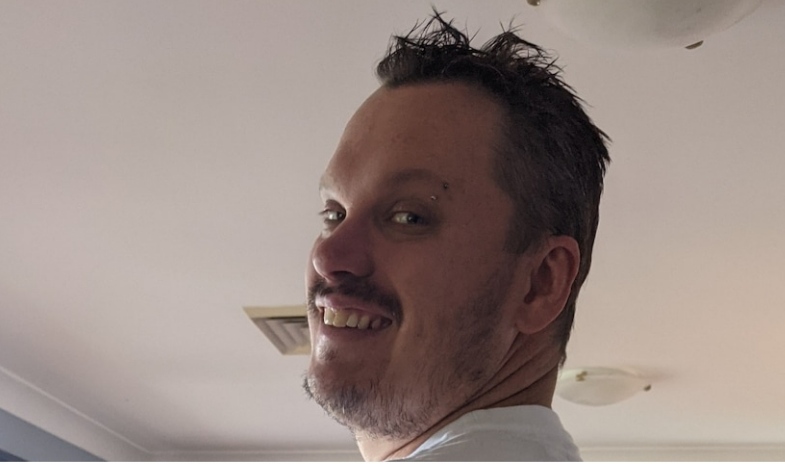
There is widespread confusion since the government made AstraZeneca an option for all, but some young Aussies (here and abroad) have jumped at their chance to get the vaccine.
The development has been welcomed by Canada’s tourism and business sectors but doesn’t move the needle for a Houweling family reunion.
Under current Canadian immigration restrictions, Fiona, her husband and two younger children will only be eligible to enter Canada for a one-off occasion, if they receive another note of family exemption.
Fiona says that application has been with the immigration office for several months.
Like Australia, the Canadian government continues to deter foreigners from entering the country, but has hinted that future border travel may be contingent on a person’s vaccination status. “Any decision to ease or modify border measures in Canada will be based on scientific evidence,” a spokesperson said.
Fiona knows getting vaccinated, which is widely available in the US, could be a ticket for her family’s eventual reunification.
So far, though, she’s unsure about getting the jab and, for now, her only strategy is to keep doing what she’s been doing for 16 months: Just waiting it out.
“I really hope that the whole thing will just die out after a while,” she said.




